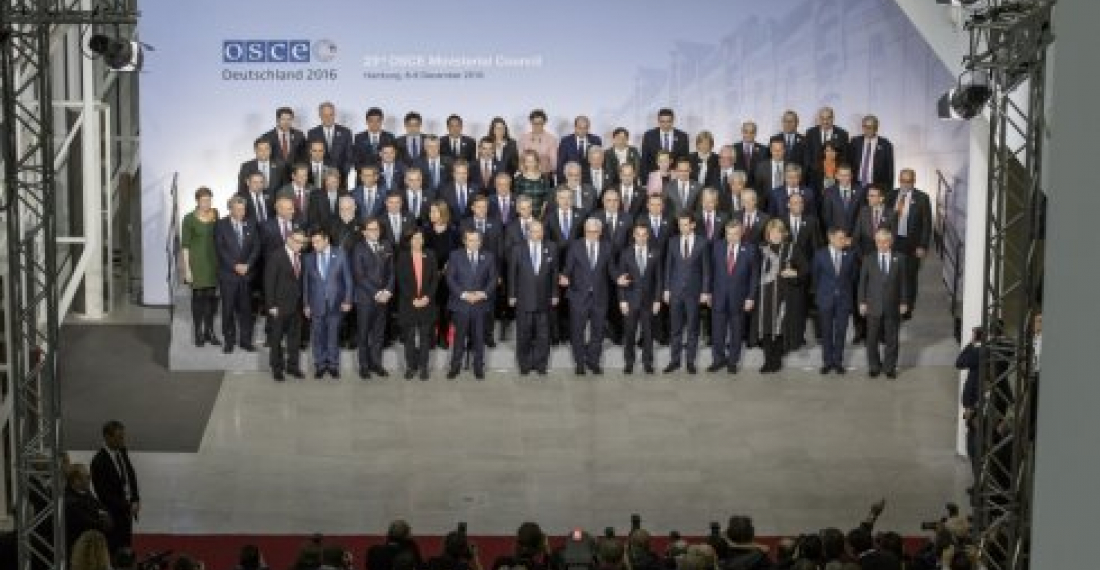The 23rd Ministerial Council of the Organisation for Security and Co-Operation in Europe (OSCE), opened in Hamburg on Thursday (8 December). Foreign Ministers from the 57 member states of the organisation, as well as partner countries are participating in the meeting.
In this year's meeting one can note a particular emphasis on the Nagorno-Karabakh conflict in the speeches by the different foreign ministers.
In his opening remarks, German Foreign Minister, Frank-Walter Steinmeier, who is the Chairman-in-Office of the OSCE for 2016 referred to the current turbulance in the international situation. “It seems that crisis mode has become the new normal in these times of upheaval,” said Steinmeier, referring to the key objectives of the German Chairmanship: “By renewing dialogue we wish to contribute to rebuilding trust that has been lost. This is indispensable to restoring security in the OSCE area, from Vancouver to Vladivostok.”
On the Nagorno-Karabakh conflict Steinmeier said:
Developments in the Nagorno-Karabakh conflict give cause for concern: the renewed outbreak of hostilities in early Aprilbrought home to us all how dangerous this conflict remains. My many talks have reaffirmed my belief that consolidating the ceasefire and finally launching genuine negotiations to find a political solution are of pressing importance. We will continue to steadfastly support the efforts of the Minsk Group and its co-chairs
You can read the full text of the speech of the German Foreign Minister here
EU High Representative on Foreign and Security Policy, Federica Morgherini also touched on the Karabakh conflict during her speech in Hamburg. Morgherini said
In light of the dangerous escalation in the Nagorno-Karabakh conflict last April, the European Union calls for re-engagement in good faith on the basis of proposals put forward by the Minsk Group Co-Chairs. We still hope to see the implementation of the agreements reached at the Vienna and St. Petersburg Summits.
You can read the full speech of High Representative Morgherini in Hamburg here
In the meantime the Foreign Ministers of Armenia and Azerbaijan have been having a series of bilateral meetings with various counterparts on the margins of the Hamburg meeting. They also met separetly with the co-chair of the OSCE Minsk group on the Karabakh issue. It is expected that the two foreign ministers, together with the foreign ministers of the three co-Chair countries (France, Russia and the United States) will also meet in the next day or two, although this could not be finally confirmed.
source: commonspace.eu with agencies
photo: "The family picture" of the OSCE Foreign Ministers at their meeting in Hamburg on 8 December 2016 (picture courtesy of the OSCE).






